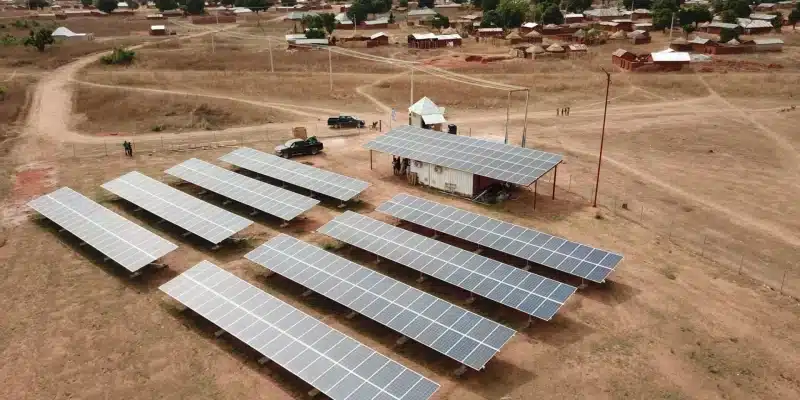With 86% of Niger's population living without electricity, decentralized solar power is emerging as a viable solution, especially for people living in rural areas. That's what Sol! Groupe and d.light, who will be working in partnership.
The political and diplomatic crisis in Niger is increasingly giving way to the realities on the ground, especially in terms of access to essential services. Among these services is electricity, which has been largely neglected and underfunded in recent years in favor of imports from Nigeria. Just a few days after the coup d’état that toppled Mohammed Bazoum on July 26, 2023, Nigeria cut off its electricity, which was mainly used to light up the capital Niamey.
A paradox in a country that produces uranium, which is used to generate nuclear power. Niger also has a resource which, this time, can benefit the most disadvantaged populations: the sun. This natural resource will increasingly be channeled to produce electricity through photovoltaic solar panels. Two companies have recently decided to work together to solve this problem in the villages of Niger.
Partnership for rural electrification
The two companies are d.light, a supplier of solar home systems based in San Francisco, USA, and the French Sol! Groupe. As part of this Sahel-wide partnership, d.light, which is very active in East Africa, will supply portable solar lanterns, solar home systems, inverters and associated appliances, including fans and televisions.
Read also- NIGER: the AfDB releases $138m for electrification via solar and mini-grids
Distribution will be handled by Sol! Groupe, which has extensive local knowledge. Like other off-grid solution providers operating in Africa, the company is expected to rely on the pay-as-you-go system, necessary for rural populations, often living on low incomes. In rural Niger, barely 5% of the population has access to electricity. In the country as a whole, only 14% of Nigeriens have access to this essential service, one of the lowest electrification rates on the continent.
Large-scale electricity production
Alongside these systems, solar-powered mini-grids will also need to be developed. These types of installations are capable of supplying a community, or even an entire village. Neighbouring Nigeria, which is also facing the challenge of rural electrification, is using this solution. And it’s working, thanks to the support of development partners like the World Bank.
However, decentralized systems alone cannot meet Niger’s electricity challenge. A few months ago, the transitional government inaugurated the Gourou Banda 30 MWp photovoltaic solar power plant, built with the support of the French Development Agency (AFD) and the European Union (EU). It is in Niger’s interest to find energy autonomy, as it will be increasingly difficult to establish an electrical connection with neighboring countries, following its withdrawal from the Economic Community of West African States (ECOWAS), at the same time as Burkina Faso and Mali.
Jean Marie Takouleu





